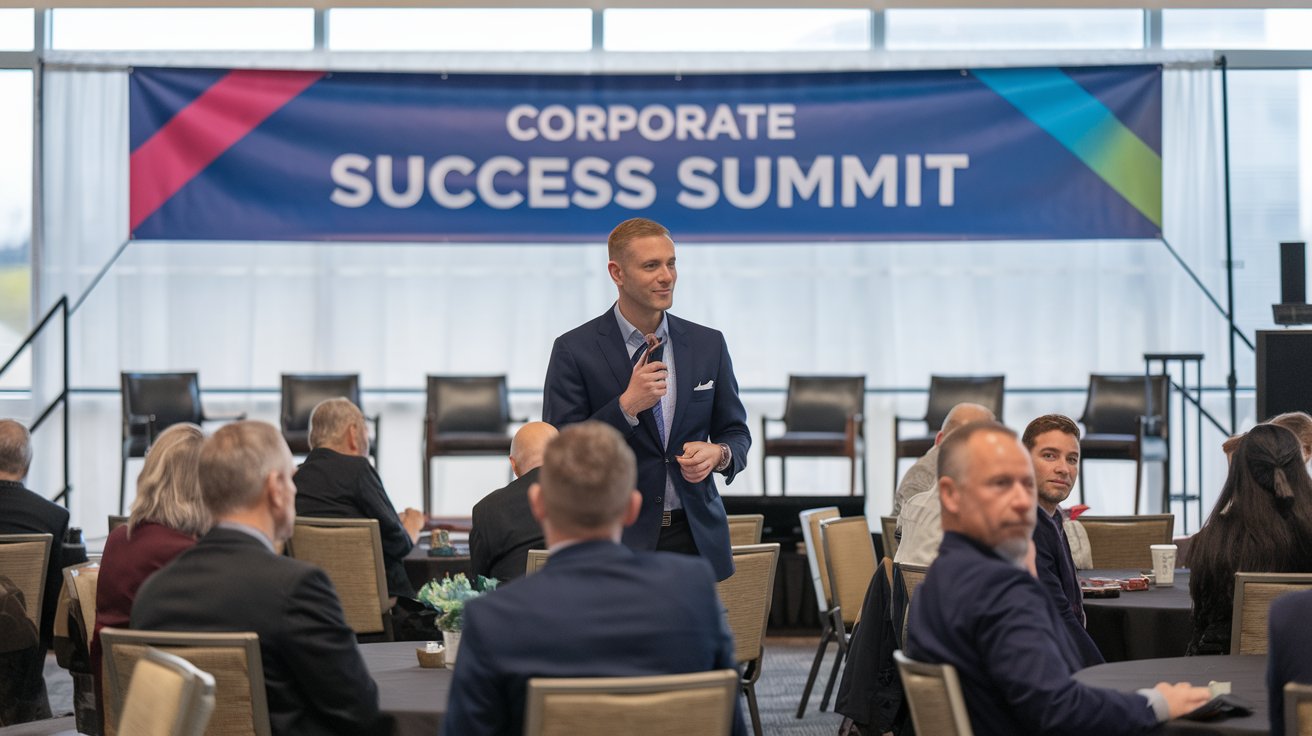Corporate Event Coordinators are essential for the successful execution of business events. They seamlessly manage every detail to ensure that each event meets its objectives. These professionals bring a blend of creativity, organization, and experience to orchestrate events that not only impress attendees but also achieve the strategic goals set by the organization. Their role extends beyond simple task management; they are responsible for creating an engaging and cohesive event experience that resonates with both the company and its audience.
Role of Corporate Event Coordinators
The role of Corporate Event Coordinators is multifaceted, encompassing everything from initial planning to final execution. Their responsibilities include:
- Understanding Client Needs: A deep understanding of the client’s vision and goals is at the heart of successful event coordination. Coordinators work closely with clients to grasp their objectives, audience expectations, and desired outcomes. This understanding forms the foundation for planning and executing an event that aligns with the company’s strategic goals.
- Planning and Budgeting: Once the objectives are clear, coordinators develop a detailed event plan that includes timelines, budgets, and resource allocation. They manage budgets meticulously, ensuring every expense is justified and the event stays within financial constraints. Effective budgeting is crucial for avoiding overspending and ensuring a high return on investment.
- Venue Selection and Management: Choosing the right venue is critical to event success. Coordinators research and select venues that align with the event’s theme and accommodate the anticipated number of attendees. They handle venue contracts, negotiate terms, and coordinate logistics such as layout, seating arrangements, and technical requirements.
- Vendor Coordination: Corporate Event Coordinators liaise with various vendors, including caterers, decorators, audio-visual technicians, and entertainment providers. They ensure that all vendors are aligned with the event’s requirements and that their services are delivered on time and to the expected standard.
- On-the-Day Management: On the event day, coordinators oversee the entire operation to ensure everything runs smoothly. They manage the schedule, handle any last-minute issues, and coordinate with vendors and staff to ensure that all event elements are executed as planned.
Crafting Tailored Event Solutions
One of the standout features of effective Corporate Event Coordinators is their ability to create tailored event solutions for businesses. This involves:
- Customizing Event Themes: Coordinators work with clients to develop unique event themes that reflect the company’s brand and resonate with the target audience. Themes are carefully crafted to enhance the event experience and create a memorable impression.
- Designing Engaging Content: Coordinators collaborate with content creators to develop engaging presentations, speeches, and activities that align with the event’s objectives. This includes creating interactive elements, incorporating multimedia, and ensuring relevant and engaging content.
- Coordinating Logistics: Every detail, from catering and entertainment to technology and décor, is meticulously planned and coordinated. Coordinators ensure that all logistical aspects are seamlessly integrated into the event, creating a cohesive and immersive experience for attendees.
- Managing Guest Experience: Enhancing the guest experience is a top priority for coordinators. They manage guest lists, handle RSVPs, and ensure all attendees receive a warm welcome. Coordinators also address any special requirements or requests to ensure a positive and enjoyable experience.
Ensuring Effective Communication and Coordination
Effective communication is a cornerstone of successful event management. Corporate Event Coordinators are responsible for:
- Maintaining Clear Communication: Coordinators serve as the central point of contact for all stakeholders involved in the event. They facilitate clear and consistent communication between clients, vendors, and event staff to ensure everyone is informed and aligned.
- Coordinating with Stakeholders: Coordinators manage relationships with various stakeholders, including sponsors, partners, and media representatives. They ensure that all parties are engaged and their contributions align with the event’s objectives.
- Handling Issues and Contingencies: Despite careful planning, unforeseen issues may arise. Coordinators are adept at handling contingencies, quickly addressing any problems, and ensuring that the event continues smoothly.
- Monitoring and Reporting: Coordinators monitor the event’s progress and performance, providing real-time client updates and making adjustments as needed. After the event, they prepare detailed reports that include feedback, analysis, and recommendations for future events.
Maximizing Event Impact
To maximize the impact of a corporate event, coordinators focus on several key areas:
- Leveraging Technology: Technology plays a crucial role in modern event management. Coordinators utilize event management software, social media, and digital tools to enhance engagement, streamline processes, and provide valuable insights.
- Measuring Success: Evaluating an event’s success involves assessing whether it met its objectives and delivered the desired outcomes. Coordinators use metrics such as attendee feedback, engagement levels, and ROI to measure success and identify areas for improvement.
- Enhancing Brand Visibility: Corporate events provide an opportunity to enhance brand visibility and strengthen relationships with clients, partners, and employees. Coordinators ensure that branding is consistently integrated throughout the event, from promotional materials to on-site signage.
- Creating Lasting Impressions: A successful corporate event leaves a lasting impression on attendees. Coordinators focus on creating memorable experiences that resonate with guests and reinforce the company’s brand and values.
Partnering with an Event Management Company
In conclusion, Corporate Event Coordinators are instrumental in ensuring business events’ success through their comprehensive event management approach. By partnering with a reputable event management company, businesses can benefit from the expertise and structured approach these professionals offer. Coordinators bring valuable skills and experience to the table, ensuring that every aspect of the event is meticulously planned and executed. For businesses looking to achieve impactful and successful corporate events, engaging with experienced event coordinators is a strategic investment that can significantly enhance their event experience and deliver exceptional results.

